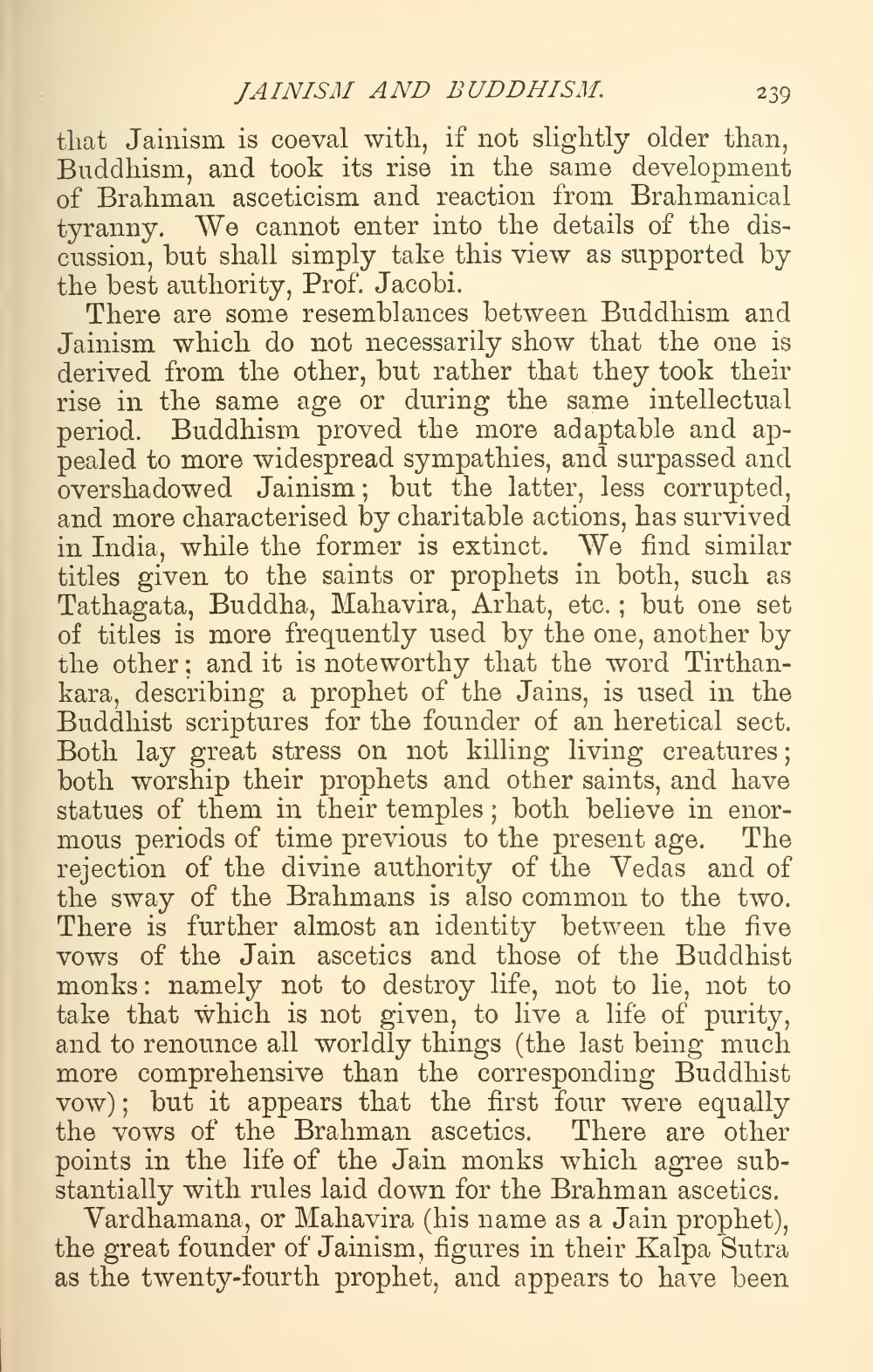________________
JAINISM AND BUDDHISM.
239 that Jainism is coeval with, if not slightly older than, Buddhism, and took its rise in the same development of Brahman asceticism and reaction from Brahmanical tyranny. We cannot enter into the details of the discussion, but shall simply take this view as supported by the best authority, Prof. Jacobi.
There are some resemblances between Buddhism and Jainism which do not necessarily show that the one is derived from the other, but rather that they took their rise in the same age or during the same intellectual period. Buddhism proved the more adaptable and appealed to more widespread sympathies, and surpassed and overshadowed Jainism ; but the latter, less corrupted, and more characterised by charitable actions, has survived in India, while the former is extinct. We find similar titles given to the saints or prophets in both, such as Tathagata, Buddha, Mahavira, Arhat, etc.; but one set of titles is more frequently used by the one, another by the other, and it is noteworthy that the word Tirthankara, describing a prophet of the Jains, is used in the Buddhist scriptures for the founder of an heretical sect. Both lay great stress on not killing living creatures; both worship their prophets and other saints, and have statues of them in their temples; both believe in enormous periods of time previous to the present age. The rejection of the divine authority of the Vedas and of the sway of the Brahmans is also common to the two. There is further almost an identity between the five vows of the Jain ascetics and those of the Buddhist monks: namely not to destroy life, not to lie, not to take that which is not given, to live a life of purity, and to renounce all worldly things (the last being much more comprehensive than the corresponding Buddhist vow); but it appears that the first four were equally the vows of the Brahman ascetics. There are other points in the life of the Jain monks which agree substantially with rules laid down for the Brahman ascetics.
Vardhamana, or Mahavira (his name as a Jain prophet), the great founder of Jainism, figures in their Kalpa Sutra as the twenty-fourth prophet, and appears to have been




